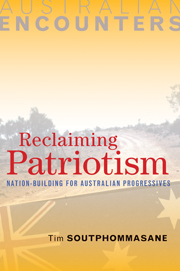Book contents
1 - The dog whistle excuse
Published online by Cambridge University Press: 05 May 2010
Summary
On a crisp February night in Oxford, the community of Australian postgraduate students gathered in a college bar for a quick pint before the main event. There was, that evening, some required viewing. At Oxford, it is a periodic ritual for Australians there to organise a live television feed in one of the colleges or town bars, sometimes for the cricket, sometimes the AFL or rugby. But no one had ever arranged a telecast of the day's proceedings in parliament. This night, though, was the occasion for no ordinary sitting of MPs.
It was still only two months after Labor's election win and Kevin Rudd had yet to address parliament as prime minister. Rudd had made it the task of his first speech at the dispatch box to offer an official statement of apology to the Stolen Generations, a reversal of his predecessor's stance on the issue. Howard believed it was unnecessary to say sorry for the good intentions of white Australians implicated in the mistreatment of Aborigines. Yet the weight of the national conscience was set against him: whatever the intentions, misguided paternalism was still just that. To use Rudd's words, the forced assimilation of Aboriginal children was a policy that ‘inflicted profound grief, suffering and loss’, as well as ‘indignity and degradation’ on ‘a proud people and a proud culture’.
- Type
- Chapter
- Information
- Reclaiming PatriotismNation-Building for Australian Progressives, pp. 14 - 34Publisher: Cambridge University PressPrint publication year: 2009



